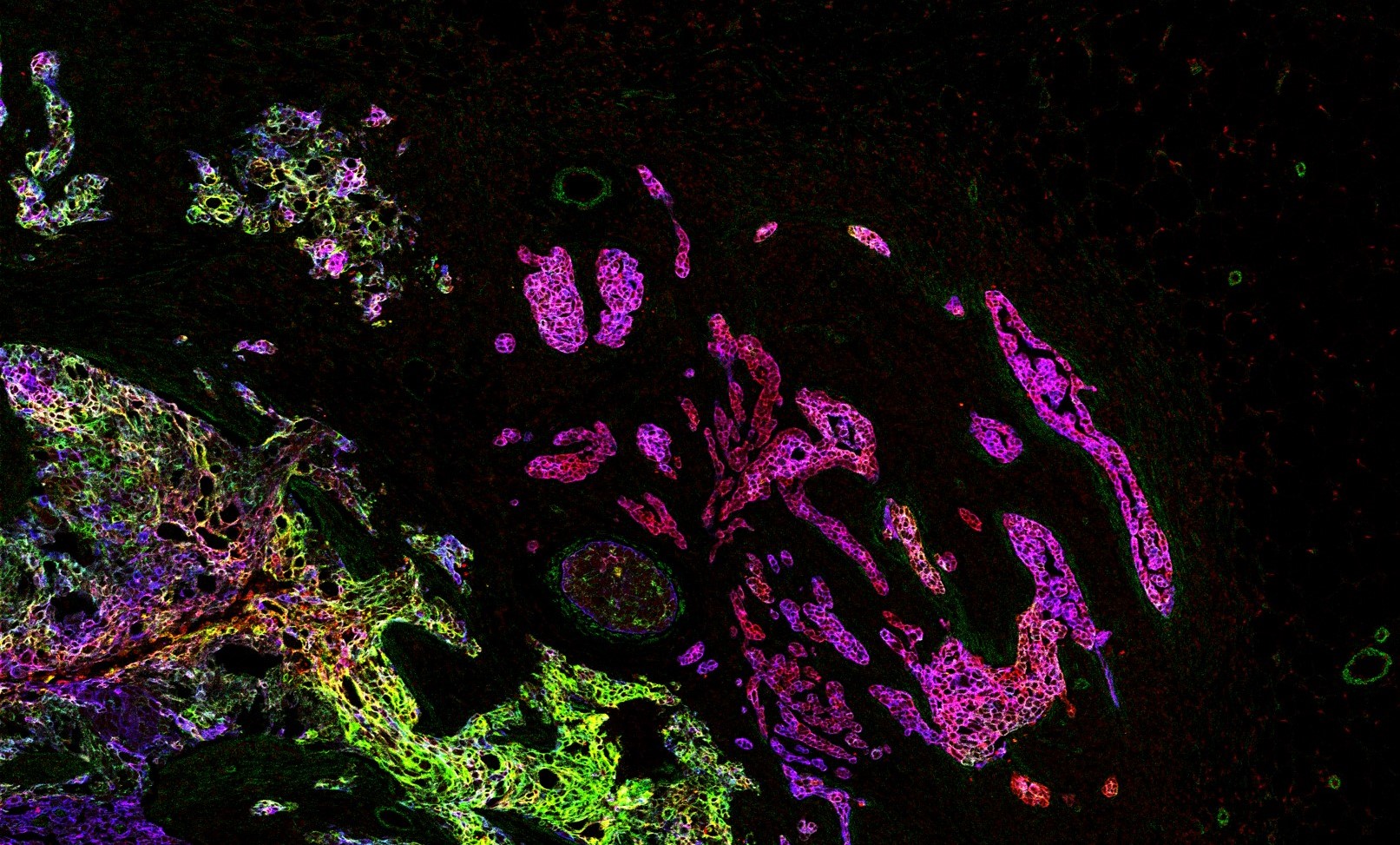Research

Methods Development
We develop experimental and computational methods to study tumor ecosystems on the single-cell level. In such an ecosystem, many cell types, including tumor, stromal, immune and endothelial cells, interact and communicate in multicellular assemblies. We seek to understand how tumor ecosystems function and ultimately how their properties affect disease. We generate comprehensive single-cell datasets of tumors from many patients, which requires detection of dozens of markers simultaneously. We have pioneered mass cytometry-based and computational methods for simultaneous multiplexed marker detection and analysis in both dissociated tissues and on tissue sections in situ, and continue to develop these methods further.
Translational Research & Precision Medicine
Solid tumors are multicellular ecosystems of diverse cell types that interact to manifest emergent phenotypes which ultimately determine clinical outcome. We combine suspension or imaging mass cytometry with computational techniques to systematically describe cell phenotypes and their interactions in tumor ecosystems and to examine their properties across patients and tumor types. We generate atlases of human tumors from large patient cohorts with known clinical outcome, and identify cellular and spatial phenotypes associated with disease progression. These atlases lay the foundation for improved patient stratification and provide potential drug targets for ongoing study. These data are also the foundation for follow-up studies to understand mechanisms of the disease. We are part of several large-scale, multi-center projects bringing together clinicians, research labs and pharmaceutical companies, in which we develop mass cytometry and imaging mass cytometry for precision medicince applications.
Mechanisms of Cancer
Single-cell systems biology analyses of tumor samples yield a wealth of data about cancer biology. To understand the regulatory networks underlying the disease, we use algorithmic and data-driven approaches to model subpopulations of cells and their signaling network structures. Further, using data from mass cytometry and imaging mass cytometry, we model how signaling network states spatially couple with those of other cells. To enable machanistic studies, we use ex vivo patient-derived organoid and cell co-culture models to conduct functional studies aimed at understanding mechanistic aspects of tumor biology. Ultimately, the aim is to understand the mechanisms that shape tumor ecosystem properties to enable targeted therapeutic inerventions.
For more information, please visit our external page website